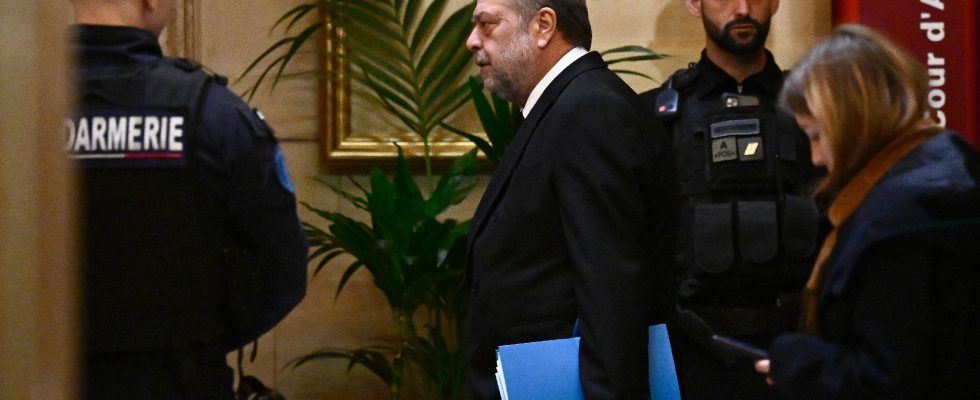Profitability calculations serving as a moral compass for French leftism, we should not be surprised to see the Insoumis and their eco-socialist auxiliaries howl as they do against the acquittal of Eric Dupond-Moretti: if they attack the Court of Justice of the Republic (CJR), it is probably that she did something good. Even more, it is undoubtedly that its maintenance is justified.
Oh, certainly, the CJR could have done things differently. Judge for example that the initiation of an administrative investigation can never constitute the material element of the offense of illegal taking of interest given that the sole purpose of an investigation is to seek the truth about facts. The heart of his reasoning is also debated, according to which the intentional element of the offense (the awareness of committing it) cannot be mechanically revealed by its material element (the fact that Dupond-Moretti had, in his former life lawyer, contact with the magistrate concerned). Given that our law requires these two criteria to be combined, some will think that it is good in itself to be able to debate each of them and to resist the temptation to reduce them to just one. Others will consider, on the contrary, that this type of automatic deduction avoids many idle assessments of what constitutes “sufficient awareness” of committing the offense. But, up to a point, it doesn’t matter.
If the Court was embarrassed to choose the right reasons to acquit the minister, the main thing is perhaps that it found the courage to do so, and therefore not to fall into any of the two pitfalls which threaten it: here the conviction with exemption from punishment; there, the punishment inflicted in doubt to please the (many) fans of political decapitation. The first would have exposed her to the risk – suicidal – of appearing dedicated to the absolution of the powerful. The second would have brought closer the perspective of a country intoxicated by the joys of the circus and become impossible to lead because paralyzed by the criminal fear of those in power.
The CJR was designed for at least three good reasons: 1) given the principle of separation of powers, political action must also be – if not primarily – a matter of political assessment; 2) since ministerial activity does not resemble anything else, we must avoid any misunderstanding relating to the real functioning of government by judges whose job is not to live within it; 3) justice must not be used for political purposes. It is for all this that we resolved to create a special jurisdiction, made up of magistrates and parliamentarians, but also to prohibit the mechanism of the constitution of a civil party: no one must be able to impose the holding of a trial unjustified against a member of the government. Before the CJR, victims’ requests are therefore filtered by an independent commission. Nothing is inconsistent about it even if, as always, the system is not perfect. It would not be wrong to say, among other things, that the mere status of parliamentarian elected by his peers does not offer the guarantee of sufficient knowledge and understanding of ministerial functioning and that this is far from it. even by a lot. But let’s…
The CJR judges only the acts carried out by ministers in the exercise of their functions. These functions, like these acts, involve what is most singular and most irreducible in the State. We must therefore never judge it as anything else. You have to understand nothing about the public interest to demand the application of common law to members of the government. Today more than ever, the principle of separate treatment is essential. The avalanche of requests to the CJR – more than 19,000 for the Covid crisis alone – shows a worrying development in social demand. The trend towards the judicialization of political life is gaining momentum. Let’s not hide our faces. The country more than ever needs reasonable safeguards to avoid condemning itself to impotence and the drooling cult of spectacle. The CJR, whatever people say about it, is part of the lot.
*Denys de Béchillon is a constitutional expert and professor of law at the University of Pau.
